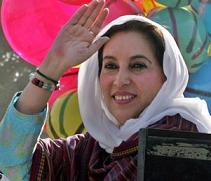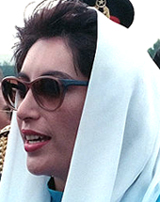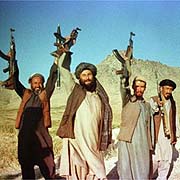
How 9-11 Configured in Pakistan’s Aspirations for Democracy
Some two decades may have separated President Gen. Zia ul Haq and President Gen. Pervaiz Musharraf’s military rule in Pakistan, but they had one person in common – Benazir Bhutto.

Some two decades may have separated President Gen. Zia ul Haq and President Gen. Pervaiz Musharraf’s military rule in Pakistan, but they had one person in common – Benazir Bhutto.


This is election year in Pakistan. Political parties are trying to keep the military out of politics. The country's civil society is pushing for free speech in a nation whose history has been shaped by military coups.

In a recent visit along the Pak-Afghan border, I found growing evidence that the battle hardened Islamic militants had regrouped with a vengeance. It should have come as no surprise: last year the Taliban insurgency had set a new record of over 4,000 people killed. Although the Northwest Frontier Province has traditionally been more conservative than the rest of the Pakistan, I discovered that Islamic militancy had grown almost reflexively in proportion to U.S. bombardment in the region.

Pakistan is one of the Bush administration’s close allies in the war against terrorism. Yet anti-American sentiment there has been growing with unprecedented force since the US conducted a war in Iraq, another Muslim country in the neighborhood.
In March, tens of thousands of people took to the streets to oppose the start of the war. While the coalition of Islamic parties in the United Council for Action (MMA) led the opposition marches in major cities, they won considerable support from secular forces. The anger has been growing since 2001, when hundreds of ordinary Pakistanis living in the North West Frontier Province lost their lives in the US-led military operation against the Taliban in neighboring Afghanistan.
Copyright Toward Freedom 2019